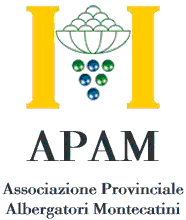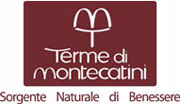prenotazioni alberghiere - pubblicità in materia di “cancellazioni gratuite” - decisione dell’Advertising Standards Authority
L’Autorità inglese per il controllo della pubblicità (Advertising Standards Authority - ASA) ha censurato, ritenendolo ingannevole (“misleading”), uno spot televisivo con il quale Booking.com annuncia che nella maggior parte dei casi le prenotazioni effettuate attraverso il portale possono essere cancellate gratuitamente (“… and if you have to cancel, cancel. Most of the time it’s free and you can always book again”).
L’Autorità ha rilevato che - di norma - la prenotazione “non cancellabile” costa meno della prenotazione “cancellabile”. Conseguentemente, se il cliente paga un prezzo per avvalersi della libertà di cancellare, la prenotazione non può essere definita “gratuita”.
Pertanto, l’Autorità ha vietato l’ulteriore trasmissione dello spot (“The ad must not be broadcast again”) ed ha ingiunto l’utilizzo di una diversa terminologia (“not to describe the cancellation option for rooms as “free” if a premium was paid for that option”).
Tenuto conto del fatto che tale campagna pubblicitaria è stata condotta ed è tuttora in corso anche sui canali televisivi italiani, considerate le segnalazioni pervenute dalle organizzazioni aderenti, la problematica è stata portata per le vie brevi all’attenzione dell’Autorità Garante per la Concorrenza ed il Mercato che, ai sensi della legislazione italiana, ha competenza in materia di pubblicità ingannevole.
È allegato il testo della delibera adottata dall’ASA.
Distinti saluti.
Il Direttore Generale
(Dr. Alessandro Massimo Nucara)
allegato
ASA RULING ON BOOKING.COM BV
Ad description
A TV ad for Booking.com, seen on 1 July 2017, promoted the different features of their website. A voice-over stated, “At Booking.com you’ll find a wide range of accommodation. From sun drenched holidays to weekend getaways for every possible budget and if you have to cancel, cancel. Most of the time it’s free and you can always book again.”
Issue
The complainant, who believed the cancellation fee was included in the package price, challenged whether the claim “…if you have to cancel, cancel. Most of the time it’s free” was misleading and could be substantiated.
Response
Booking.com BV explained that customers did not pay Booking.com directly as they operated an online reservation system. They said that accommodation suppliers set their own room prices and opted whether or not to offer free cancellation to customers.
Booking.com explained that there were usually two pricing options for accommodation. The first option was for non-refundable, cheaper booking. If a customer chose that option, they would be required to pay for the full cost of the room at the point of booking. Further, should the customer wish to cancel the booking at a later date, they would not receive a refund for the booking. The second option was described as “free cancellation” and was the more expensive option. If a customer chose that booking, they would only pay for the booking upon completion of their stay. Should the customer cancel the booking within the relevant time period, they would not pay any costs and therefore would benefit from free cancellation.
Booking.com said that it was common practice across the travel industry for the lowest room prices to be an inflexible booking that could not be amended or cancelled and that the higher room prices allowed customers to cancel bookings at a later date without any cost. They said that customers understood that the “free cancellation” claim referred to the fact that there were no charges if the customer chose to cancel the booking in accordance with the applicable terms.
Booking.com highlighted the voice-over in the ad which stated “… most of the time it’s free …”. They said that the phrase informed customers that the majority, but not all properties, allowed cancellation without charge.
Clearcast said that upon receipt of the complaint, they received information which was not available when they approved the script. The information showed that room rates with the “free cancellation” option were more expensive than the other options.
Clearcast said because they did not have that information when clearing the ad, they were unable to advise that the claim was unacceptable under the BCAP Code.
Assessment
The ASA noted that the ad referred to the range of possible destinations and types of holidays offered by Booking.com and to the range of budgets those holidays were suitable for, before it stated “… and if you have to cancel, cancel. Most of the time it’s free and you can always book again”. While we understood that flexible booking options were common in the travel industry, and considered that consumers would generally be aware that as the degree of flexibility increased, so would the cost, we did not consider that they would understand from the reference to free cancellation that it was only available with more expensive, flexible bookings. We considered that consumers would understand the claim “… if you have to cancel, cancel. Most of the time it’s free” to mean that if they wished to cancel their booking in most instances they could do so without incurring cost.
When looking for accommodation, the website presented a number of pricing options for the same room, including in many cases, an option which stated “free cancellation” which was more expensive than the “non-refundable” option. With the free cancellation option, consumers were not required to pay for the booking until they had completed their stay, in contrast with the non-refundable booking which required payment at the point of booking. We noted that customers who booked the free cancellation option, but opted not to cancel the booking, would subsequently pay more for the same room than the customers who had opted for the non-refundable option. While we acknowledged that if a customer cancelled the free cancellation booking within the relevant time period, they would benefit from having made the booking at no financial cost. Nevertheless, we considered that consumers would not regard the cancellation provision as an additional and/or free benefit which incurred no cost, because the price of the booking was more expensive when it included the cancellation option.
Because at the time of the complaint the ad stated that cancellation was free, which we understood was not the case because a booking with the cancellation option was more expensive than one without, we concluded that the ad was misleading.
The ad breached BCAP Code rule 3.1 (Misleading advertising).
Action
The ad must not be broadcast again. We told Booking.com BV not to describe the cancellation option for rooms as “free” if a premium was paid for that option.
← Ritorna




























Le Terme Tettuccio